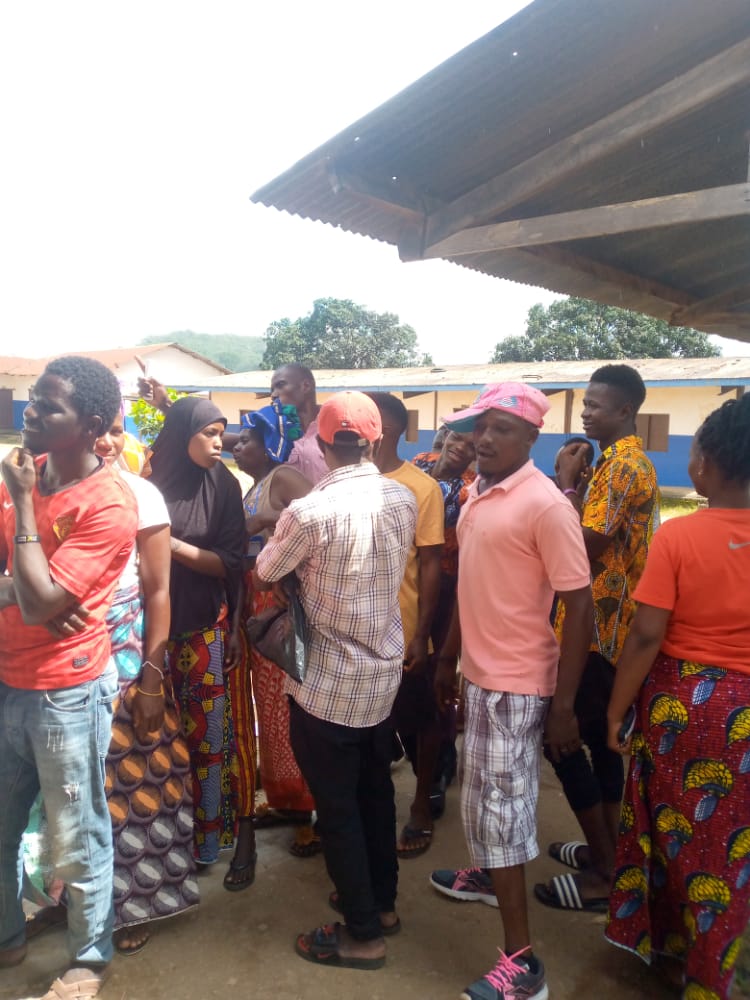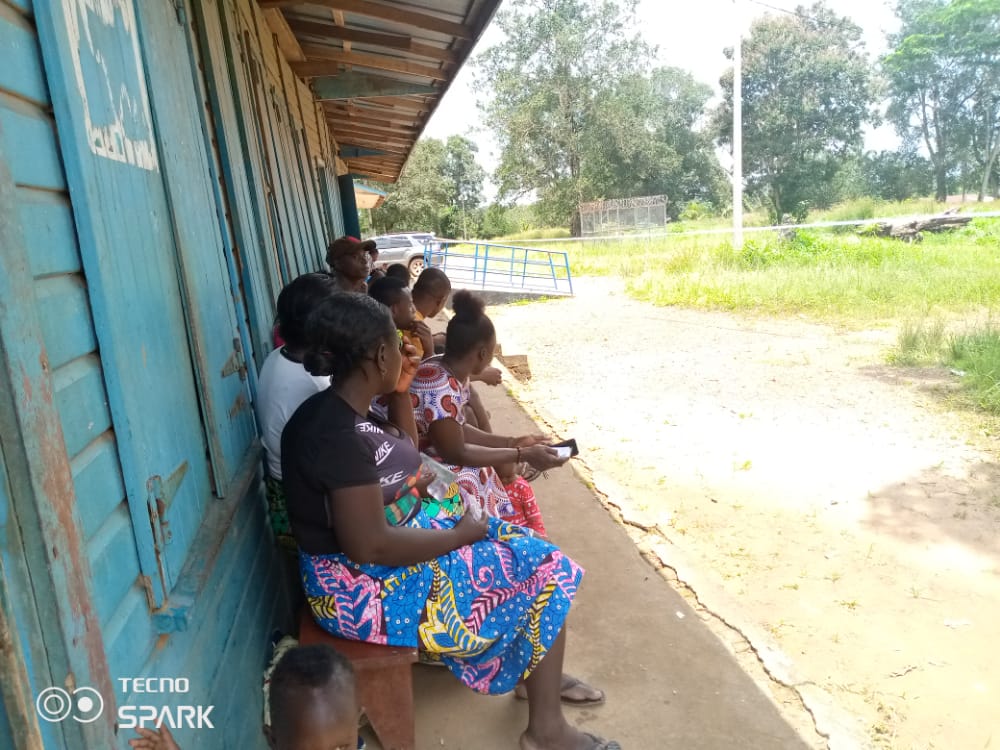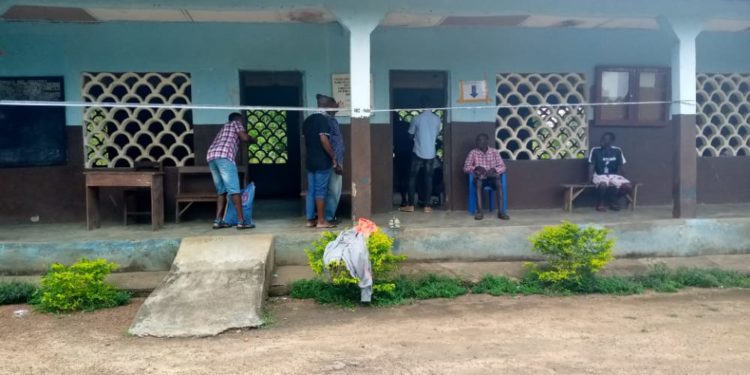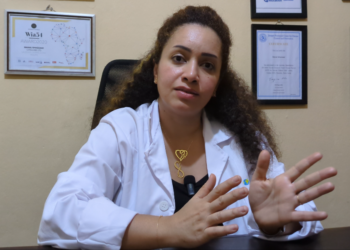By James Samuel Cole in Kabala and Francis Lahai Conteh in Pujehun
Registration of voters ahead of next year’s general elections in Sierra Leone started on Saturday, September 3rd on an agonizingly slow pace, amid complaints of lack of resources and poor coordination.
In many parts of the country, there were complaints of delay in commencement of the exercise, mostly because of unavailability of power to charge the computers.
Dozens of registration officers have been deployed across the country to register prospective voters aged 18 and above. The Electoral Commission of Sierra Leone (ECSL) says citizens who will turn 18 on June 24, 2023, the day of the elections, can also register.
According to the Commission, the registration process will be in two phases, each phase lasting for 15 days, in a total of 1, 815 centers. The first phase ends on 17th September. Two days later, the second phase commences and ends on October 4th, 2022. The Commission says it will need the two days interval to mobilize equipment and staff across the country to be deployed to the other registration centers.
ECSL Chairman and Chief Electoral Commissioner, Mohamed Kenewui Konneh, assured of a successful process and urged citizens to come out in their large numbers to register.
“I encourage every eligible Sierra Leonean including those who will be 18 years old on 24th June, 2023 to turn out in your numbers and present yourself at the registration center where you intend to vote and update your details,” he said in a statement on the eve of commencement of the exercise.
Sierra Leoneans will be voting for president, parliament and local council representatives.
Chairman Konneh urged citizens to ensure registering where they intend to vote.
Citizens need either a valid Sierra Leonean passport, previous Voter ID card, a National ID card, certificate of registration from the National Civil Registration Authority (NCRA) or Sierra Leonean birth certificate to be registered.

The ECSL says it has established a situation room at its Headquarters in Freetown to respond to public concerns during the next one month. A toll-free line – 838 on Africell, Orange and Qcell networks – is available for people to reach out with their concerns.
Incumbent President Julius Maada Bio and First Lady Fatima Bio were among the first people to be registered on Saturday. The First Family presented themselves for registration at the Hockey Pitch in the Wilberforce Military Barracks. President Bio, after registering, urged fellow citizens to turn up in their numbers to register, noting that democracy is the alternative to violence.
Bio, first elected in 2018, is seeking reelection for a second and final five-year term, as per constitutional provision.
The registration exercise starts three weeks after the deadly August 10 protest over rising cost of living. Organisers of that protest accused his administration of failing in its promises.
But the President has said that the protesters hid behind rise in cost of living in an attempt to forcefully take political power. A committee set up to investigate the incident was inaugurated on Thursday, September 1.
Analysts say the current political tension is an indication of the stakes in next year’s election. But President Bio says there is no need for violence when the opportunity to make a decision through the ballot box is at hand.
“My messages have been the same before 2018 as a presidential aspirant and now as the President of the country… We don’t need to fight. That is why we have democracy. Once you have your ballot, you can be in the position to say whatever you want to say by keeping or supporting or changing that government,” he says.
“Democracy is an alternative to violent change of government,” he stresses, urging all citizens of voting age to register so that they can maintain his government “because of the many good things we have been doing.”
However, there have been concerns from some quarters that one month is not enough to register every voter. The delay in the process as witnessed on Saturday and Sunday, which points to an apparent lack of preparedness by the ECSL, appears to validate these concerns.
The equipment used in the registration process requires charging. Solar powered chargers provided by the ECSL turned out to be ineffective due to the rainy weather conditions.

In many centers, the officials complained that they were given generators as back up without fuel. Some of the officials lamented that they couldn’t buy fuel because they weren’t given any money even as allowance.
The Commission itself in a statement acknowledge the problems and promised to work on them.
“There are reported issues with the opening process in some voter registration centers. However, the Commission is working towards addressing the issues,” it said in a statement on Saturday.
How the ECSL improves in the next few days will make a huge difference. And this is a concern for many people, including Freetown Mayor Yvoone Aki-Sawyer, who spent much of the day on Saturday criss crossing parts of the capital city, observing the process.
Mayor Aki-Sawyer, via one of several live facebook broadcasts, lamented the slow pace of the process.
“We hope that it will be resolved because we really want to see more people registered in the shortest possible time,” she says.
Reports from across the country indicate that the situation is no different elsewhere. In fact, in some parts of the country it is even worse.
In the southern Pujehun district, for instance, many centres on the outskirts of the district headquarters town were faced with power problem, so that registration commenced late and was forced to end early.
In Male, part of Constituency 104 in the southern region, out of 13 registration centers, only five reported no problem. In some of the centers were no activities.
Across the northern region of the country, residents of Kabala also had their fair share of the difficult experience. The Kabala Community Registration Center was one of the few that commenced the exercise on schedule. Officials there started a little after 7:30 on Saturday. But there was a visible low turnout, which some residents attributed to the previous day’s experience.
In spite of her experience, Mabinty Conteh was determined to wait for her turn.
“I left my business to register and vote. Even though the process is very slow, I have to be patient. It’s my right as a citizen,” she told ManoReporters.
At the nearby RC Primary School in Kabala, there was a chaotic scene caused by unavailability of power. Lamin Sheka was already frustrated standing on the queue around 1pm.
“I have been here since 8:30 this morning, only to find out that there was fuel shortage in the generator, which stalled the registration process,” he laments.
The slow pace of the process caused anger in some people, who got agitated, forcing the ECSL officials to calm them down. Sheka himself was unhappy with the officials for allegedly allowing people who were not in the queue to register before him.
“My desire is to register to vote and make a change in the governance system,” he says.
Ibrahim Sannoh in Malen, Pujehun contributed to this article.






















